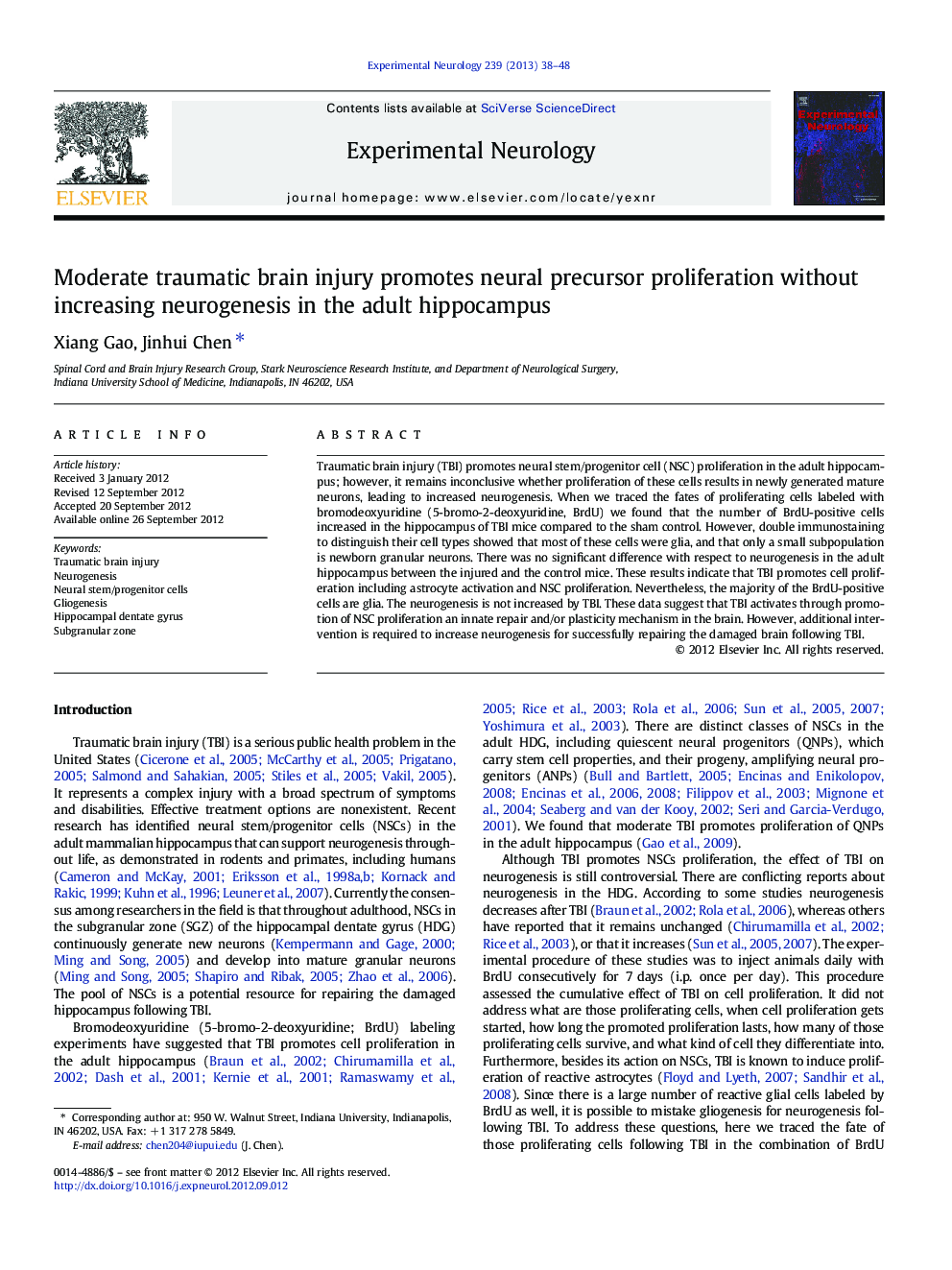| Article ID | Journal | Published Year | Pages | File Type |
|---|---|---|---|---|
| 6018468 | Experimental Neurology | 2013 | 11 Pages |
Traumatic brain injury (TBI) promotes neural stem/progenitor cell (NSC) proliferation in the adult hippocampus; however, it remains inconclusive whether proliferation of these cells results in newly generated mature neurons, leading to increased neurogenesis. When we traced the fates of proliferating cells labeled with bromodeoxyuridine (5-bromo-2-deoxyuridine, BrdU) we found that the number of BrdU-positive cells increased in the hippocampus of TBI mice compared to the sham control. However, double immunostaining to distinguish their cell types showed that most of these cells were glia, and that only a small subpopulation is newborn granular neurons. There was no significant difference with respect to neurogenesis in the adult hippocampus between the injured and the control mice. These results indicate that TBI promotes cell proliferation including astrocyte activation and NSC proliferation. Nevertheless, the majority of the BrdU-positive cells are glia. The neurogenesis is not increased by TBI. These data suggest that TBI activates through promotion of NSC proliferation an innate repair and/or plasticity mechanism in the brain. However, additional intervention is required to increase neurogenesis for successfully repairing the damaged brain following TBI.
⺠TBI promotes cell proliferation in the adult hippocampus. ⺠Most of the proliferating cells in the hippocampus following TBI are reacting glia. ⺠Neural stem cell proliferation is transiently increased in the hippocampus following TBI. ⺠Moderate TBI does not increase neurogenesis in the adult hippocampus.
